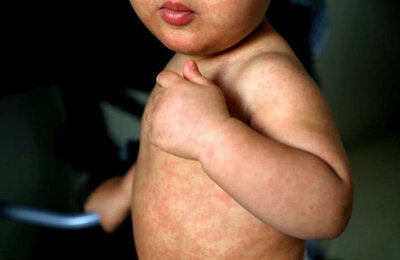
 Health leaders meeting at the Pan American Health Organization (PAHO) vowed today to take action to counter attempts by the tobacco industry to subvert public health efforts aimed at protecting people from the harmful effects of tobacco use.
Health leaders meeting at the Pan American Health Organization (PAHO) vowed today to take action to counter attempts by the tobacco industry to subvert public health efforts aimed at protecting people from the harmful effects of tobacco use.
Legislation aimed at reducing tobacco use and exposure to second-hand smoke is under assault from cigarette makers and their allies
Washington, D.C., September, 29, 2010 (PAHO) — Health leaders meeting at the Pan American Health Organization (PAHO) vowed today to take action to counter attempts by the tobacco industry to subvert public health efforts aimed at protecting people from the harmful effects of tobacco use.
Ministers of health and other high-level delegates from countries throughout the Americas pledged to "oppose attempts by the tobacco industry or its allies to interfere with, delay, hinder, or impede the implementation of public health measures designed to protect the population from the consequences of tobacco consumption and exposure to second-hand smoke."
They also called on PAHO to help strengthen their ability to implement tobacco control measures, particularly those contained in the World Health Organization's Framework Convention on Tobacco Control (WHO FCTC).
Tobacco control measures such as regulations on packaging and labeling, restrictions on advertising and promotion, and bans on smoking in public places have proved highly effective in reducing tobacco consumption.
As a result, these measures have been actively opposed by the tobacco industry. An expert committee convened by WHO concluded in 2000 that the tobacco industry has operated for years with the express intention of subverting the role of governments and of WHO in implementing public health policies to fight the tobacco epidemic.
In discussions during PAHO's 50th Directing Council, Minister of Health of Paraguay Dr. Esperanza Martinez told fellow delegates that tobacco industry opposition was threatening to roll back her government's efforts to comply with the FCTC. She cited two recent presidential decrees, one banning smoking in enclosed public spaces and the other regulating labeling and packaging of tobacco.
"The implementation of both decrees is suspended at this moment due to injunctions and a challenge to their constitutionality by members of the tobacco industry, at both the national and international levels," she said. "Under these circumstances, it's very clear that we need the strong political support of the countries of the Region to prevent a painful setback to battles that we only recently won."
In the resolution passed today, PAHO Directing Council members declared they were "deeply concerned about misinformation campaigns and legal actions" sponsored by cigarette makers and their allies against tobacco control measures." They called on countries to publicize, to the extent legally possible, the activities of the tobacco industry in order to expose their strategies and reduce their effectiveness.
The resolution also expressed specific support for Uruguay and measures it has implemented that have made it a pioneer in tobacco control among Latin American countries.
The FCTC is the first international public health treaty and was adopted by WHO Member States in 2003. It contains provisions on labeling and packaging of tobacco products, smoke-free public spaces, tobacco tax increases, and restrictions on tobacco advertising, promotion and sponsorship.
It also calls on countries to prevent the interference of the tobacco industry and its allies in policymaking and measures related to tobacco control.
In the Americas:
- 27 countries (three-fourths of all PAHO member countries) have ratified the FCTC, most recently, the Bahamas and Suriname.
- Three countries—Chile, Cuba and Venezuela—tax tobacco products at 75 percent of the retail price, while at least 10 others—Bahamas, Brazil, Colombia, Guyana, Jamaica, Mexico, Nicaragua, Suriname, Trinidad and Tobago, and Uruguay—have increased tobacco taxes by lesser amounts.
- Nine countries—Canada, Colombia, Guatemala, Honduras, Panama, Paraguay, Peru, Trinidad and Tobago, and Uruguay—are "100 percent smoke-free," meaning they have national or local laws that cover at least 90 percent of their populations with bans on smoking in all enclosed public areas and work places (without exceptions).
- 17 countries ban the use of misleading labels and require that warnings occupy more than 30 percent of the main surfaces of tobacco product packaging. Thirteen countries (Bolivia, Brazil, Canada, Chile, Colombia, Honduras, Mexico, Nicaragua, Panama, Paraguay, Peru, Uruguay and Venezuela) go farther, using graphic images that show the harmful health effects of tobacco.
- Two countries, Colombia and Panama, have comprehensive laws banning all forms of tobacco advertising, promotion and sponsorship.
The PAHO Directing Council brings together ministers of health and other high-level delegates from throughout the Americas each year to set priorities for Pan-American cooperation in health and to guide PAHO's technical cooperation programs in its Member States.
PAHO was established in 1902 and is the world's oldest public health organization. It works with all the countries of the Americas to improve the health and quality of life of the people of the Americas and serves as the Regional Office for the Americas of the World Health Organization (WHO).
LINKS:
- PAHO's 50th Directing Council blog
- 50th Directing Council: Program of meetings and other useful information
For more information please contact Donna Eberwine-Villagrán, Knowledge Management and Communication Area, tel (202) 974-3122, fax (202) 974-3143.



